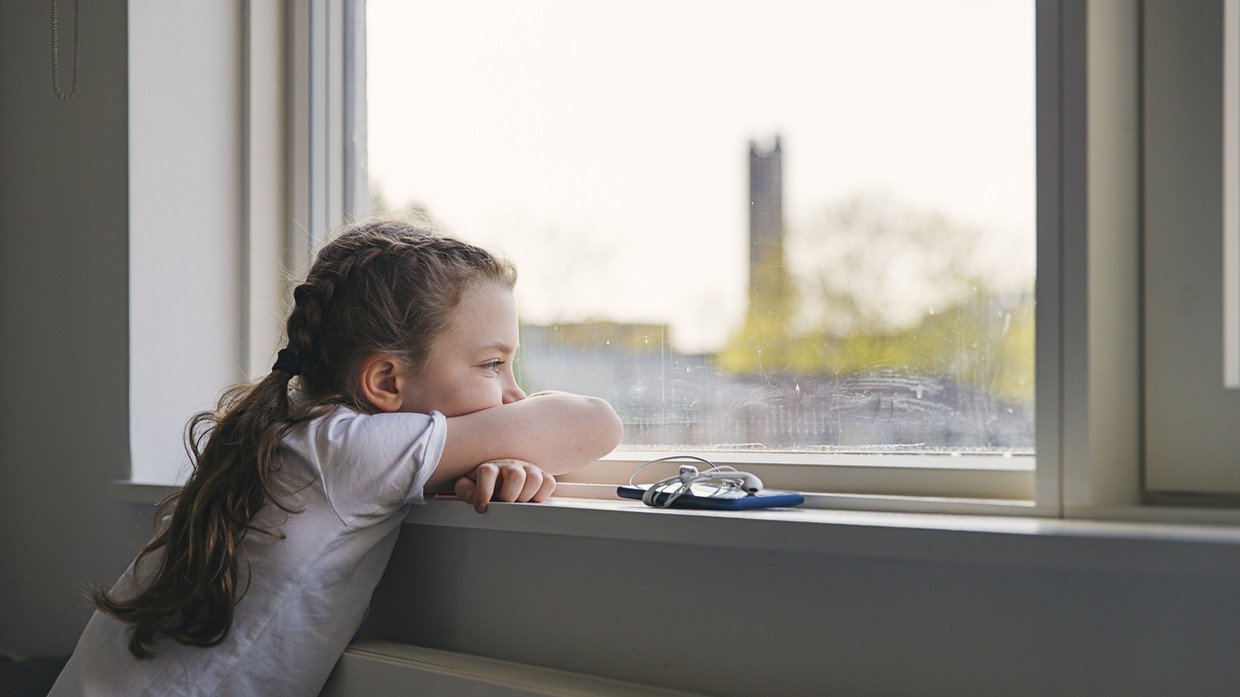Self-harm, attempted suicides and eating disorders are all on the rise as a result of children being locked up at home. However, we must be careful not to confuse mental illness with the rational misery of our current situation.
“Children in mental health crisis used to be brought to A&E about twice a week. Since the summer it’s been more like once or twice a day. Some as young as 10 have cut themselves, taken overdoses, or tried to asphyxiate themselves.” These words, from a doctor’s diary published by the BBC, make for difficult reading. A matron on a paediatric ward adds that self-harming “used to be the mind-set of older teenagers but we are seeing much younger children doing this now.”
Evidence of the damage lockdown is doing to the mental health of children is growing by the day. Increasing numbers are presenting at hospital emergency departments having self-harmed or attempted suicide. NHS data shows a rise in the number of children being treated for eating disorders. Dr Agnes Ayton, chair of the eating disorders faculty at the Royal College of Psychiatrists, said: “This deadly illness is thriving because people have lost many of their support networks alongside access to community services as a result of Covid-19.”
Meanwhile, the Children’s Commissioner, Anne Longfield, has warned that mental health services in England do not have the capacity to cope with the impact of the coronavirus pandemic on children. And let’s not forget that behind each statistic are devastated parents worried about how best to protect their children and fearful of the consequences of failure.
Lockdown, hard for everyone, is particularly tough on children. This pandemic year represents only a tiny fraction of my life, but it is a much larger chunk of my teenage daughter’s. Concern is finally being expressed about the impact of closing schools, but activities, clubs and sports teams have been forced to stop too. Rites of passage, birthday parties, exams and school leaving rituals have all been cancelled.
Online classes are better than nothing but when every day involves sitting in front of a laptop, alone, for hours on end, it becomes a lonely and tedious experience. Children might have schoolwork to complete but they miss out on playground games, gossip, friends and fun. Teenagers who can log on to class from their bed may see little point in getting up. Whereas I have deadlines to meet, a neighbour to shop for and a house to keep clean, my daughter’s days lack purpose. There are just so many hours to fill.
Sadly, rates of self-harm and mental health problems in young people were on the rise long before coronavirus. Various attempts have been made to explain this rise, with social media often to the fore. The barrage of perfect images, pressure to gain ‘likes’ and incessant demands to respond can certainly be hard to cope with. But high levels of social media usage may point to a different problem: what children are not doing with their time. Hours staring into a screen cannot be reclaimed for hanging out with friends, holding down a Saturday job, participating in sports teams or playing a musical instrument. Lockdown has exacerbated all of these pre-existing issues.
Mental health concerns in children need to be taken seriously. It is not good enough to expect those in distress to join lengthy waiting lists before they can receive professional support. But too often it seems that what we offer children is the worst of all worlds: we fail to help those in desperate need while, at the same time, creating problems in those who are simply dealing with the normal ups and downs of adolescence.
Many schools run workshops and exercises designed to open up discussion around mental health and teach coping mechanisms such as mindfulness or meditation. Such classes are well intentioned, but they can lead to even the very youngest children picking up a vocabulary of stress, depression and anxiety, as well as a propensity to diagnose these conditions in themselves. There is a risk that some children will catch adult preoccupations.
Also on rt.com 500,000 more kids face mental health issues as they’re denied school, vaccines, friends and holidays. We’re betraying a generationIt is good that children are encouraged to speak openly about mental health problems they may be experiencing. However, at the same time, it has become less socially acceptable for teenagers to admit to feeling lonely, miserable, bored or worried. Not only do these emotions sound less dramatic than depression, stress and anxiety, they can also appear to be personal failings. This becomes a particular problem during lockdown which is, by definition, a lonely and boring experience.
Right now, feeling miserable is a very normal emotional response to a highly unusual situation. It is important that children are not made to feel they are letting everyone down by struggling with lockdown, but neither should their emotions be pathologized as mental illness. Being miserable and fed up is not the same as suffering from depression.
Tragically, it seems that a small but increasing number of children are finding lockdown so difficult to cope with that it is leading them to self-harm or even to contemplate suicide. We owe them the very best clinical support that is available. But we must also keep in mind that, no matter how tough they are finding lockdown, most children are resilient and – just about – coping. They deserve to be allowed to be children again at the first possible opportunity. When that moment comes, adults need to leave them alone to play, laugh, and have fun.
Think your friends would be interested? Share this story!
The statements, views and opinions expressed in this column are solely those of the author and do not necessarily represent those of RT.

